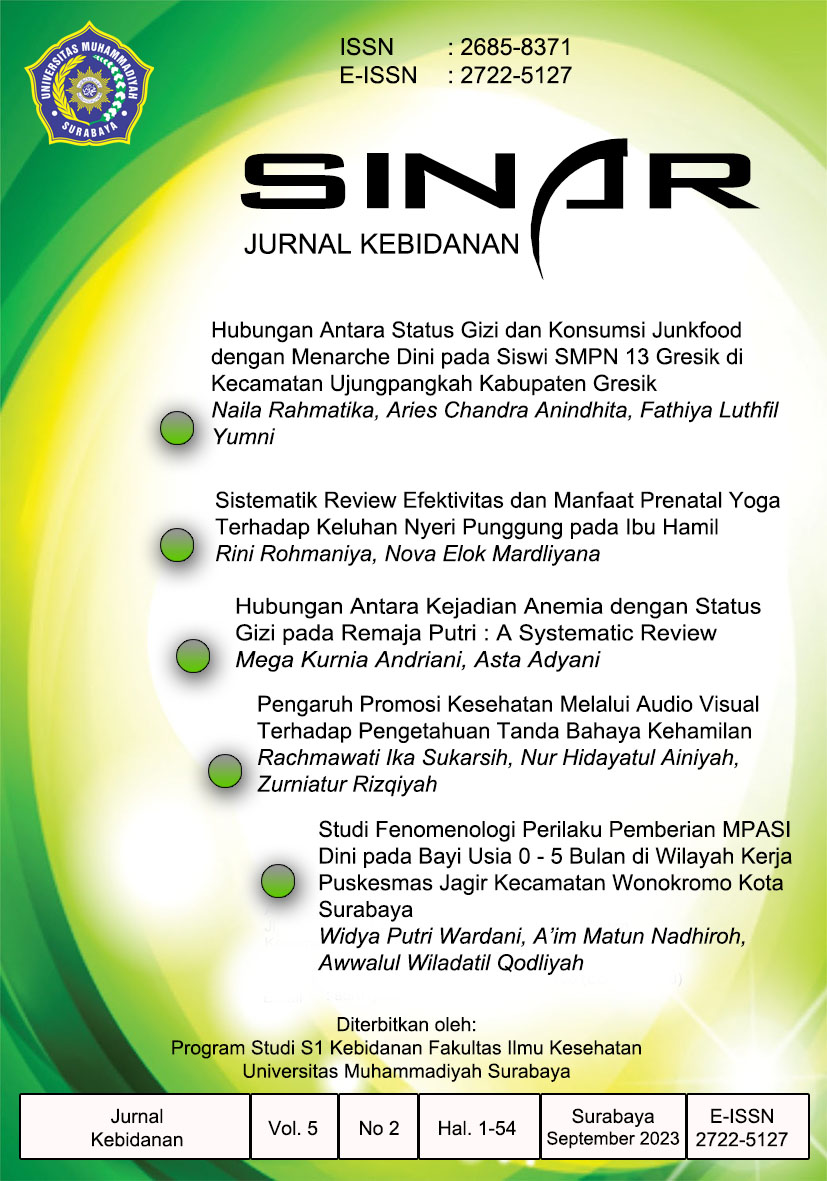STUDI FENOMENOLOGI PERILAKU PEMBERIAN MPASI DINI PADA BAYI USIA 0-5 BULAN DI WILAYAH KERJA PUSKESMAS JAGIR KECAMATAN WONOKROMO KOTA SURABAYA
Abstrak
Objective: Smart and healthy children can be realized by their growth and development during the Golden Age which is a critical period because children are at risk of experiencing disorders that can occur due to insufficient or excessive nutritional intake such as lack of exclusive breastfeeding. One of the causes of the lack of exclusive breastfeeding is due to the behavior of early complementary feeding which has a negative impact on infants such as being more susceptible to diarrhea, constipation, coughs, colds, and heat due to the baby's imperfect immune system. To determine the behavior of early complementary feeding in infants aged 0-5 months in the working area of Jagir Health Center, Wonokromo District, Surabaya City.
Methods: Qualitative research with a phenomenological approach. The research was conducted at several posyandu in the working area of Jagir Community Health Center, Wonokromo Subdistrict, Surabaya City. The research subjects were mothers who had babies aged 0-5 months who were given early solids in the working area of the Jagir Health Center, Wonokromo Subdistrict, Surabaya City. The sampling technique used snowball sampling with the number of informants known after the research was completed, which amounted to 10 informants. Data analysis using Miles and Hubberman which goes through three stages, namely data reduction, data presentation and conclusion drawing.
Results: All informants had low-level thinking skills because their knowledge of complementary feeding was limited to the know category. Informants' attitudes about complementary feeding affect early complementary feeding behavior because mothers who have a positive attitude towards early complementary feeding are likely to practice inappropriate complementary feeding for their babies. Informant’s actions in early complementary feeding were based on several reasons such as fussy children, perceived inadequacy of breast milk and work.
Conclusion: The lower the level of knowledge, attitude and action about complementary feeding, the more inclined the informant's behavior will be to provide early complementary feeding
Artikel teks lengkap
Penulis
Hak Cipta (c) 2023 Aim Matun Nadhiroh

Artikel ini berlisensiCreative Commons Attribution-NonCommercial-ShareAlike 4.0 International License.
Hak Cipta ada di penulis, jurnal ini berada di bawah Lisensi
https://creativecommons.org/licenses/by-nc/4.0/


